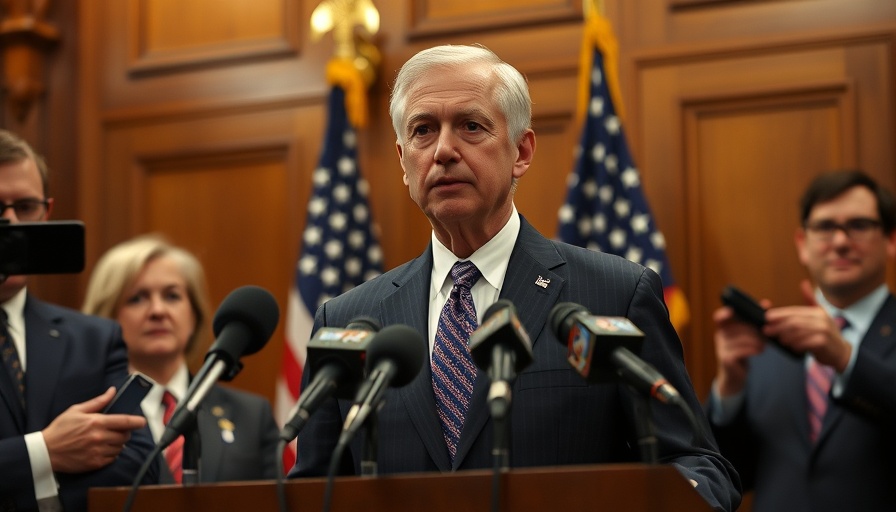
Ohio Senate Budget Proposal: Growth for Schools and a Boost for the Browns
On a sunny Tuesday afternoon in Columbus, Ohio, the state Senate unveiled a budget designed to balance critical educational improvements alongside substantial financial support for a local sports franchise. In a move sure to stir conversations among residents and taxpayers alike, the Ohio Senate Republican majority is advocating for an increase in funding for public schools, granting $600 million to the Cleveland Browns for a new stadium, and implementing a flat income tax rate of 2.75%.
Increased Funding for Education: A Commitment to Schools
The Senate’s proposed budget takes a significant step to enhance public school funding, raising the amount allocated to schools by approximately $100 million compared to the previous House proposal. While the House aimed to provide $226 million, the Senate's adjustments bring that figure close to $550 million. However, stakeholders in the education community argue that this amount still falls short. According to the Fair School Funding Plan of 2021, fully funding Ohio’s schools would require an additional $666 to $800 million.
The budget also modifies the funding guarantee amount, ensuring that districts will receive support even with declining enrollments. Moreover, Senate amendments cap districts' rainy-day funds at 50%, up from the previous 30%, which, interestingly, will compel schools to return any overages to taxpayers to help alleviate property taxes.
A Game-Changer for the Cleveland Browns: Proposed Stadium Funding
In what might be seen as a controversial move, the budget allocates a hefty $600 million grant intended for a new Cleveland Browns stadium located in Brook Park. Unlike the House, which proposed funding through borrowed bonds—leading to an estimated long-term repayment cost of around $1 billion—the Senate opts to provide the funds as a grant sourced from unclaimed state funds. This unconventional funding approach taps into a potential pool of $4.8 billion held by the state, encompassing various unclaimed deposits and accounts.
The Senate believes this investment will generate significant revenue for Ohio, predicting that the influx of games and events at the new stadium will bolster sales taxes and further financial benefits across the economy.
Tax Simplification: The Introduction of a Flat Income Tax
Alongside these substantial budget items, the proposals also include a notable tax reform initiative. The introduction of a flat income tax rate of 2.75% aims to simplify Ohio's tax structure. This mirrors the ongoing discussions in the House, aligning with efforts to eliminate multiple tax brackets for individuals earning over $102,400. Proponents argue that this simplification could enhance economic growth and attract businesses, while critics might express concerns over the potential impact on lower-income families.
Next Steps: Bridging Differences Between House and Senate
With the Senate version of the budget now public, both chambers will converge for necessary discussions to reach a compromise. It’s a crucial moment as lawmakers will need to reconcile their priorities to ensure that the essential needs of both public schools and local industry are met. The clock ticks as the biennium budget deadline approaches, creating a sense of urgency that could lead to significant changes.
What This Could Mean for Ohio Residents
As Ohioans await the final budget, it's clear that the balance between education, financial responsibility, and community investment hangs in the balance. How will the future of education funding affect local school districts? What are the long-term implications of granting public money to professional sports teams? These questions will linger as constituents voice their opinions on these pivotal choices.
Each decision will impact various segments of Ohio society, and residents are encouraged to engage in conversations about these changes that affect their daily lives. With each budgetary decision made, the future of Ohio’s schools, economy, and community spirit remains a crucial element for lawmakers and citizens alike.
 Add Row
Add Row  Add
Add 




 Add Row
Add Row  Add
Add 








Write A Comment